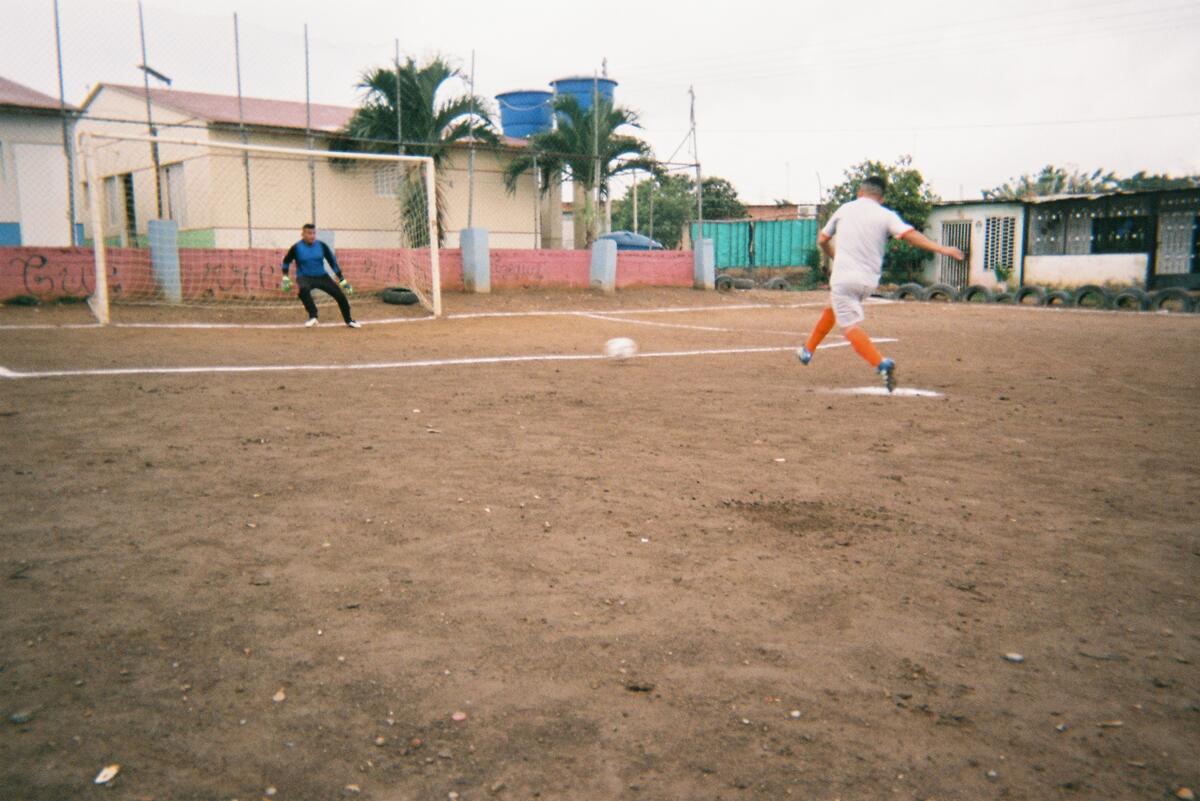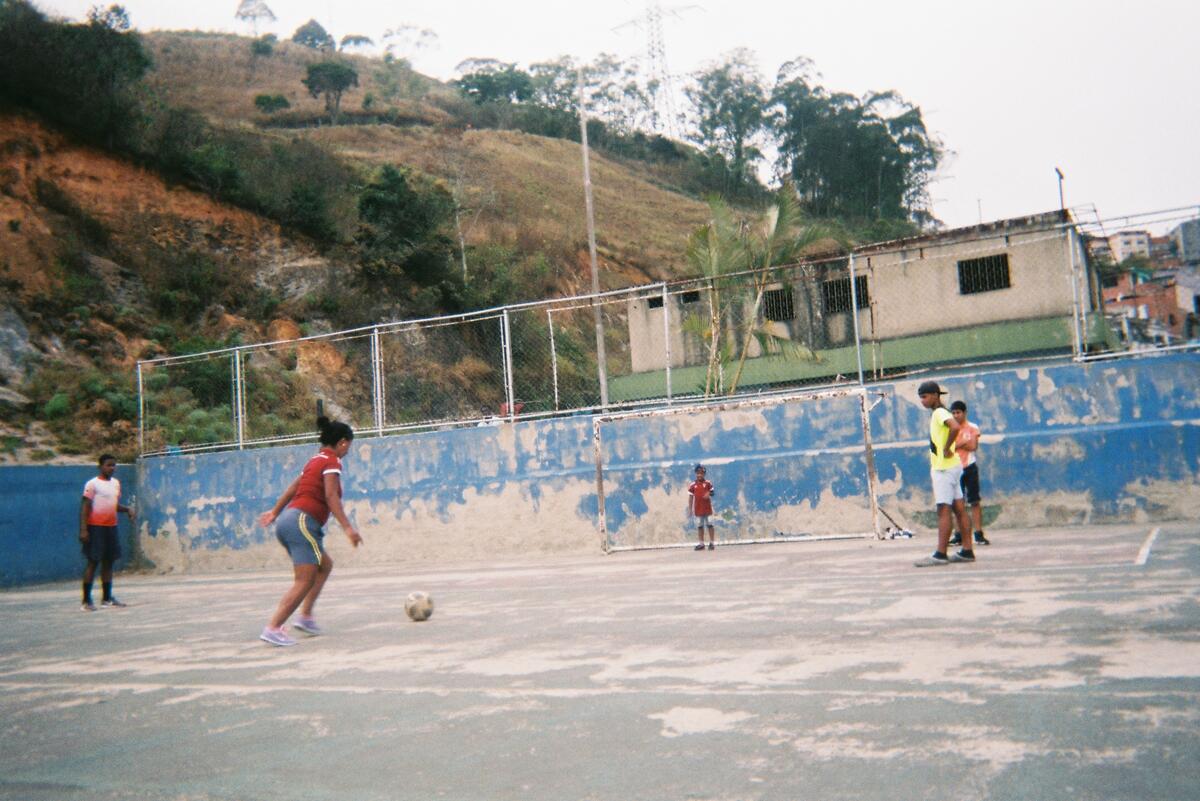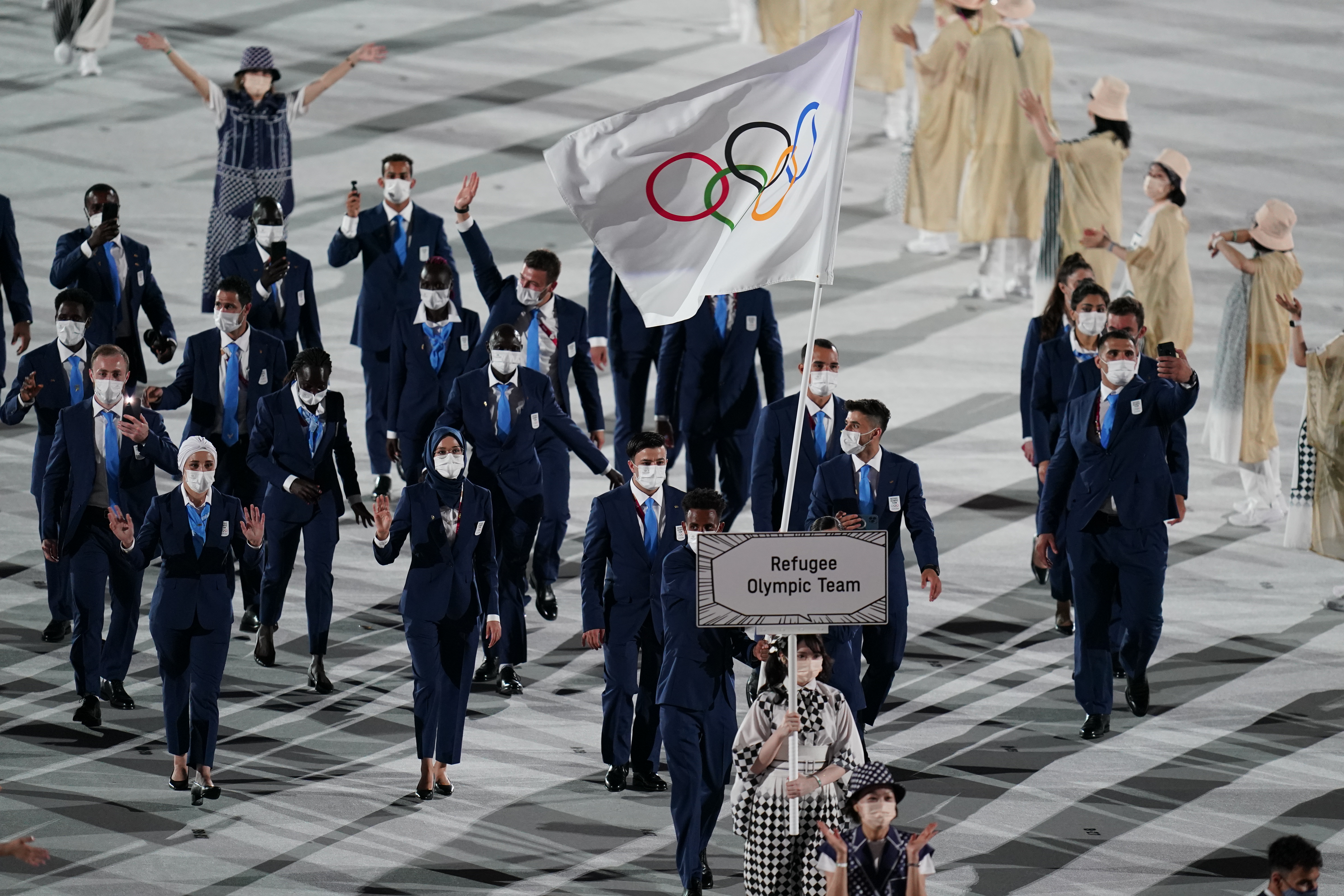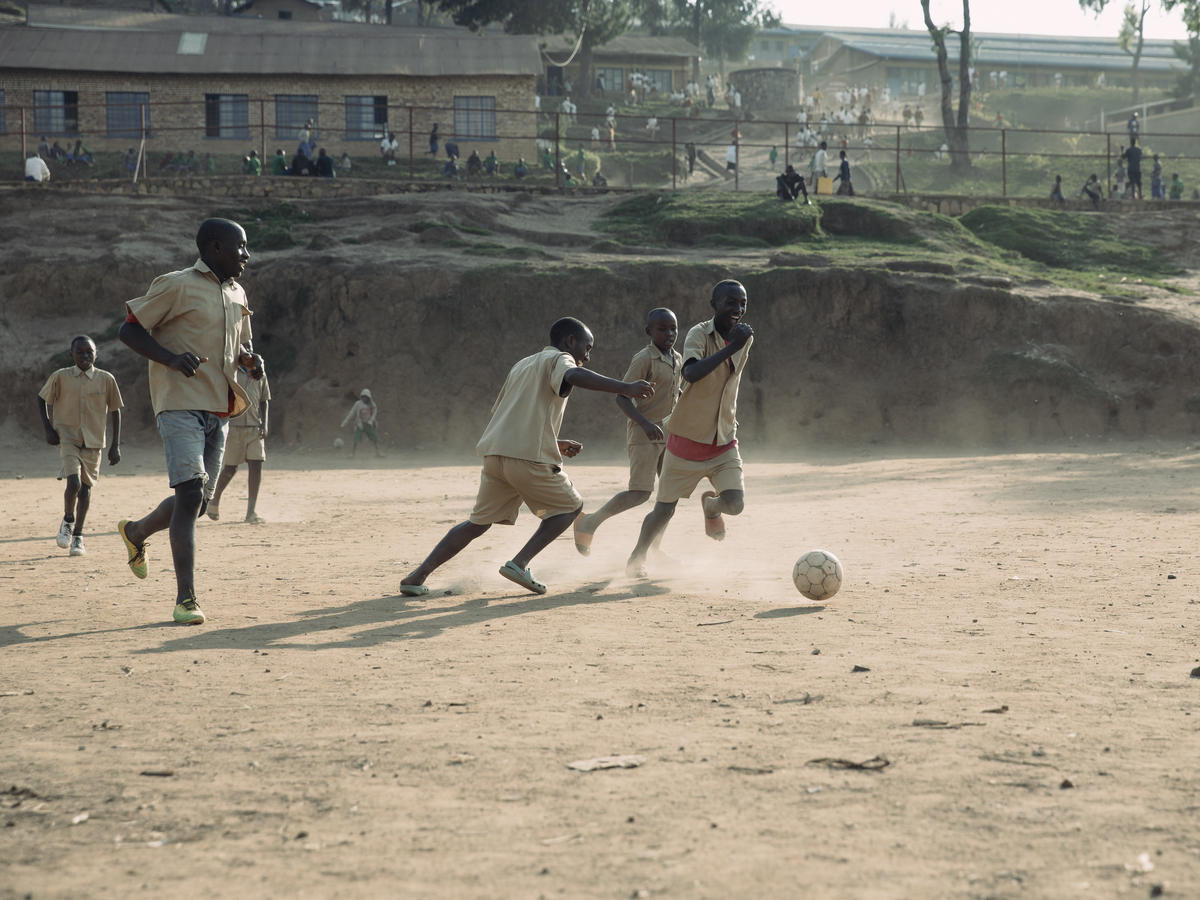Urban refugees bowled over by sporting chance in China
Urban refugees bowled over by sporting chance in China

BEIJING, China, July 15 (UNHCR) - While China is developing into a great sporting nation, the sweet crack of leather on willow is not something most people would associate with the Asian nation. But on a recent weekend in the Chinese capital, men dressed all in white chased after a little red ball and shouts of "owzat"* echoed around a school campus as a team of urban refugees assembled by UNHCR took on a group of expat amateurs in a game of cricket.
The match, held on the grounds of Dulwich College Beijing, pitted the United Nations team of 11 Ahmadi Muslim refugees from Pakistan against a multinational side of diplomats and businessmen from Beijing Cricket Club (BCC), which was launched three years ago by expats who love the game of bat and ball.
The match came as a welcome respite from the drab daily routine of life in China for urban refugees, who have no legal status and thus cannot work or attend school. They often ask UNHCR staff for something to do; anything to stave of the boredom as they wait in hope of resettlement to a third country.
"I love this game," said 32-year-old Muhammad, who fled persecution in Pakistan along with his teammates and their watching families. A bit later he was positively elated after whacking a delivery from a BCC bowler clean over the boundary with his heavy willow bat. "Six," he roared, referring to the number of runs he scored for the shot.
If the ball had hit the ground before crossing the boundary, he would have got only four runs. And if the hard, red leather cricket ball had been caught on the full, he would have been out. The aim of the batsman in cricket is to make as many runs as possible, running between two "wickets," while the bowlers and fielders try to dismiss him in various ways. The team with the most runs wins.
Despite Mohammed's mighty hitting and the presence of some former Pakistan provincial-level players in his team, the refugees fell short in the end, scoring 95 all out after the BCC had set a target of 142 runs for six wickets.
"Years outside the game made it slightly difficult," noted BCC's Shaun Nemorin, who organized the match. "But they were very competitive," he added. The result was less important than the camaraderie and sportsmanship between the two sides, while the event helped raise the sprits of the refugee players and their families.
Veerapong Vongvarotai, UNHCR's Beijing-based regional representative, stressed how important it was that urban refugees in China have some kind of "productive engagement" while the agency tries to find a durable solution for them, adding that "idleness can be a big cause of stress and pressure."
Nemorin agreed, saying that life was difficult in China for people who could not work or receive a full education. "Refugees can easily develop unproductive life patterns. In organizing this match, I aimed to increase self esteem amongst those involved and to develop a challenge that they could work towards as a team."
It was also a great day out for their families. Wives and mothers wore their finest dresses, colourful and ornately embroidered, while the children made the most of the wide open spaces, running around and playing their own cricket games with mini bats and golf balls. The quieter ones just sat and drew.
Veerapong thanked the Beijing Cricket Club and Dulwich College for their support, adding: "We hope more partners in China will offer a hand to this small but extremely vulnerable group."
He also noted that UNHCR had been putting great effort into finding education opportunities for the refugees as well as volunteer work, which at least would keep them occupied. The agency's internet-based ninemillion.org campaign aims to ensure access for millions of refugee children to education and sport.
There are around 80 urban refugees in China, mainly from the Middle East, South Asia and Africa. About half of them live in Yanjiao, a town close to Beijing. All are dependent on UNHCR for material assistance, including food, shelter, medical care and primary education.
Meanwhile, BCC has agreed to a rematch in October and there is talk of this becoming an annual event - to commemorate World Refugee Day (June 20) - between a select UNHCR 11 and the BCC. At this year's event, everyone went home a winner.
* Literally "how is that" - the appeal that players on the fielding team make to the umpire when they think a batter is out.
By Zhang Rong and Song Jing in Beijing, China








